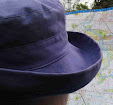Find the link to the petition here: Medical Association for the Prevention of War (Australia)
Thursday, April 25, 2019
AWM takes donations from weapons companies
I attended a Peace conference last night where I was pretty disturbed to learn that the AWM has been taking donations from weapons companies. I am an appreciative user of AWM resources, but I would rather do with less than have the AWM take money from these blood-sucking leeches war profiteers. I intend to sign the petition asking the AWM not to take these donations, which I found on the website of the Medical Association for the Prevention of War (Australia). I hope you will too.
Find the link to the petition here: Medical Association for the Prevention of War (Australia)
Find the link to the petition here: Medical Association for the Prevention of War (Australia)
Bill Elliot - one of the "Essendon boys"
There was a group of soldiers in the 7th Infantry Battalion which Colonel H E (Pompey) Elliott used to refer to as his "Essendon Boys". He knew them from their time with the 58 Infantry (Essendon Rifles), of which he was Commanding Officer before the war. He took a special interest in their careers, and was saddened by the loss of so many of them on the Gallipoli Peninsula.
Bill Elliot, Ellis Stones and Ken Walker, who knew each other well back in Essendon, were known as the Three Musketeers. Bill Elliot was living with the Stones family when he enlisted in August 1914. Of the Three Musketeers, only Ellis Stones survived the assault on Gallipoli. Bill Elliot fell on 25 April 1915.
Rod Martin now gives us the story of William Walker Highton (Bill) Elliot, one of the 'Essendon boys'.
Lest we forget any of the local boys who went away and never came home.
Bill Elliot, Ellis Stones and Ken Walker, who knew each other well back in Essendon, were known as the Three Musketeers. Bill Elliot was living with the Stones family when he enlisted in August 1914. Of the Three Musketeers, only Ellis Stones survived the assault on Gallipoli. Bill Elliot fell on 25 April 1915.
Rod Martin now gives us the story of William Walker Highton (Bill) Elliot, one of the 'Essendon boys'.
Lest we forget any of the local boys who went away and never came home.
Sunday, April 21, 2019
Lieutenant Mitchell and the gas mask
 |
| Australian War Memorial K00035 |
So when Leslie William Mitchell of 15 Locke Street, Essendon, was appointed to be a Gas Instructor to help troops survive gas attacks, horses probably featured in his lectures. As a new recruit he was identified early as having potential if trained as an officer, and when he attended a Gas School during training in England, he was also identified as a valuable instructor, and this became his main contribution to the war effort. See Lieutenant L W Mitchell's story for more of an unusual service career.
Subscribe to:
Comments (Atom)







.png)






